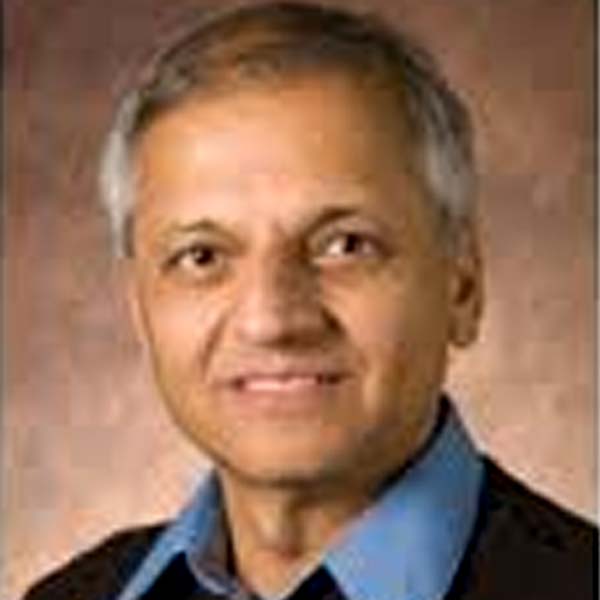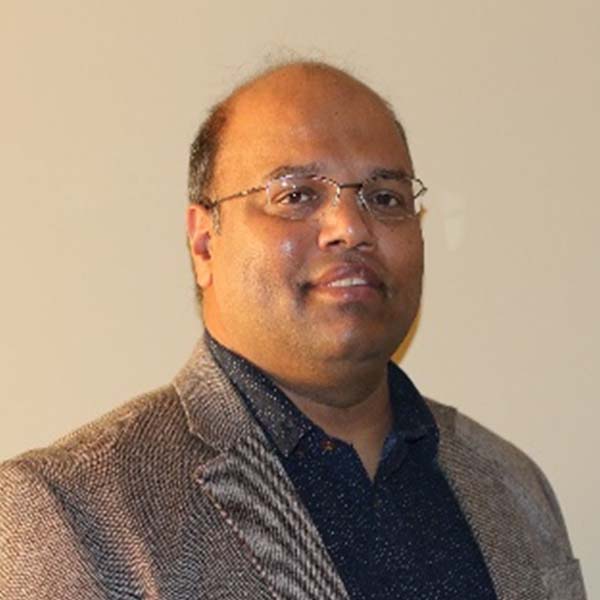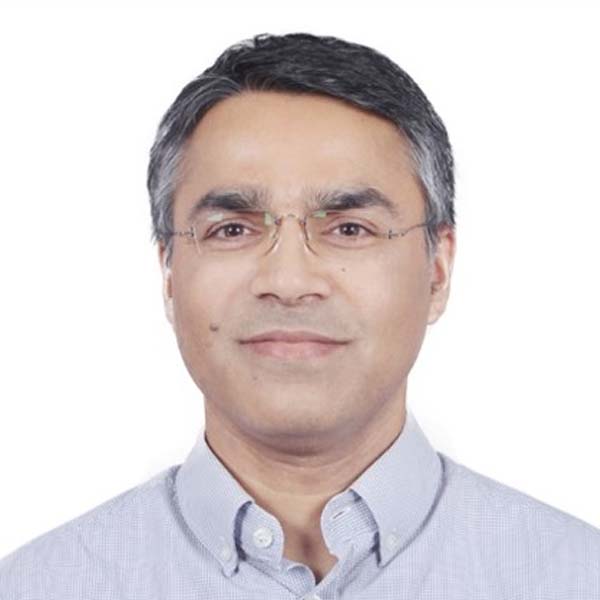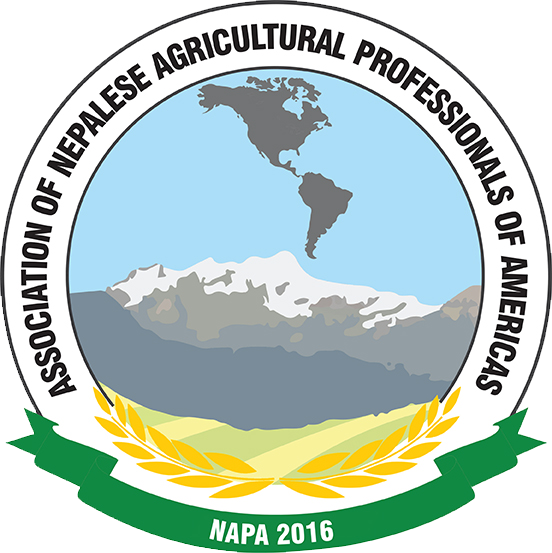| Association of Nepalese Agricultural Professionals of Americas (NAPA) |
Collaboration and Resource Building Committee (CRBC)
Goal:
Develop a resource base for expanding NAPA's contribution to strengthening the education, research, and outreach capacity of stakeholders for designing and delivering agricultural transformation programs.
Objectives:
1. Develop a NAPA member database with a subject and niche area-specific expertise and mobilize those experts through training, workshops, symposia, etc., to enhance the education, research, and outreach capacity of NAPA members and stakeholders.
2. Establish and strengthen networks–between like-minded professionals and professional organizations and societies (e.g., public research, extension, and policy developing agencies, universities, Nepalese Embassies overseas, international agencies such as USAID, Winrock International, U.S. Fulbright Program) in the Americas, Nepal, and beyond for working collaboratively and bringing synergies in programs aiming for agricultural transformation.
3. Seek funding sources for innovative agricultural education, research, and outreach programs for NAPA stakeholders.
Chair:

Keshav Bhattarai, PhD
Professor of Geography, University of Central Missouri
Dr. Keshav Bhattarai is a Professor of Geography at the University of Central Missouri. Dr. Bhattarai has 22+ years of teaching experience in the US, and 15+ years of job experiences in forestry sector of Nepal. He was also a visiting faculty at the Forestry Institute in Nepal. He served as Department Chair at the Department of Geography at the University of Central Missouri. He obtained his Doctor of Philosophy (Ph.D.) in Geography from Indi
ana University, Bloomington, Indiana, and a Masters in Natural Resource Management degree from The University of Edinburgh, Scotland, UK. Prior to that he received AIFC degree from Indian Forest College, Dehradun, India. Keshav has baccalaureate degrees in Biology, Economics, and Law from Tribhuvan University. He also obtained a diploma in Aeronautical Radio Engineering from International Civil Aviation Organization (ICAO). Dr. Bhattarai has published three books and numerous book chapters and journal articles. He has received several scholarly and research excellence and international scholar from the University of Central Missouri.
Members:
 Bharat Pokharel, PhD
Bharat Pokharel, PhD
Associate Professor, Tennessee State University
Dr. Bharat Pokharel, Associate Professor and Director of Graduate Programs at the Department of Agricultural and Environmental Sciences within the College of Agriculture, Tennessee State University, Nashville, Tennessee is an active life member of Association of Nepalese Agricultural Professionals of Americas (NAPA).Dr. Pokharel earned B.Sc. (Forestry) degree with Honors in 1998 from the Australian National University in Canberra, Australia and Ph.D. in Forest Biometrics in 2008 from the Michigan Technological University in Houghton, Michigan. In between of his periods of university studies, Dr. Pokharel worked over five years for a non-profit organization, the World Wildlife Fund (WWF), in different capacities as a resource professional in Nepal. He has four years of post-doctoral experience from Michigan Technological University and Nipissing University, Canada. He joined Tennessee State University in 2014 as an assistant professor of Applied Statistics. Dr. Pokharel is a biometrician and applied statistician, who is interested in designing research experiments, testing research hypotheses, and developing statistical model as a decision support tool in natural sciences. For the past many years, Dr. Pokharel has been involved with various community service projects that include school tree nursery project through forests without boarders (Canadian Institute of Forestry’s sponsored project in Nepal), and rebuilding school that was damaged by 2015 earthquake in Nepal through Nashville Nepalese Association (NNA), a non-profit 501 (c)(3) organization. He is the immediate past President of NNA. He has published over two dozen peer-reviewed journal articles, two book chapters, several non-peer reviewed articles, reports and proceedings, and over 50 conference abstracts/posters and invited talks. He was the recipient of “Tree of Life” award by the Canadian Institute of Forestry in 2013. He is an active member of Society of American Foresters (SAF) and Canadian Institute of Forestry (CIF), and life member of NAPA, Nepal Forester’s Association and Nepal Red Cross Society. He is currently serving as the Managing Editor and a subject editor for Global Journal of Agricultural and Allied Sciences (GJAAS).
 Krishna P. Paudel, PhD
Krishna P. Paudel, PhD
Director for Research and Communications, Resource and Rural Economics Division, USDA-ERS
Dr. Krishna P. Paudel is the Deputy Director for Research and Communications in the Resource and Rural Economics Division at the Economic Research Service (ERS) at USDA. Before starting his current position with the USDA ERS, he was the Gilbert Durbin Endowed Professor of Agricultural Economics at Louisiana State University for over 20 years. Dr. Paudel served agricultural economics and other affiliated professions in several roles, such as Editor of the Journal of Agricultural and Applied Economics and President of the Southern Agricultural Economics Association. He currently serves as Editor of the Journal of Water Resource Planning and Management, Associate Editor for Natural Resource Modeling, and editorial council member of the Journal of Agricultural and Resource Economics. Dr. Paudel focuses on water quality and quantity, technology adoption, and international development economics. He received a B.Sc.Ag. degree with distinction from IAAS/Tribhuvan University, an M.S. degree in Agricultural Economics from Auburn University, and a Ph.D. degree in agricultural economics from the University of Georgia.
 Suraj Upadhaya, PhD
Suraj Upadhaya, PhD
Social-ecological researcher, Bioeconomy Institute, Iowa State University
Suraj Upadhaya is a social-ecological researcher at the Bioeconomy Institute, Iowa State University, USA. His research and teaching are in the areas of socio-ecological systems and human dimensions of natural resource management. Currently, he is collaborating with researchers and faculties from different departments through the project "Consortium for Cultivating Human And Naturally reGenerative Enterprises" (C-CHANGE), an ISU Presidential Interdisciplinary Research Initiative. He believes that emerging challenges associated with environmental change on multiple scales span disciplinary boundaries and necessitate interdisciplinary approaches to better our understanding of social-ecological dimensions. His expertise lies in ecosystem services, natural resource management and policy, land-use change modeling, water resource conservation and management, and social-ecological system (SES) coupled with experience in human dimensions of natural resources. His academic research has trained him to integrate theories from social and natural sciences and use intensive fieldwork with complex modeling approaches to produce comprehensive research on social-ecological sustainability. His research focuses on the dynamic relationship between natural resources and people to ensure the sustainability of natural resources in the working landscapes and to benefit the people who manage them. He received a doctorate in integrative conservation of nature and forestry from the University of Georgia, USA, a master’s in forestry from the University of Kentucky, USA, and a bachelors’ degree from Tribhuvan University, Nepal.
Purushottam Mainali, DVM, MSc
Agri Economist
Ohio, USA
Bijesh Mishra, PhD
Auburn University, USA
Saroj Parajuli, PhD
INARI, USA
